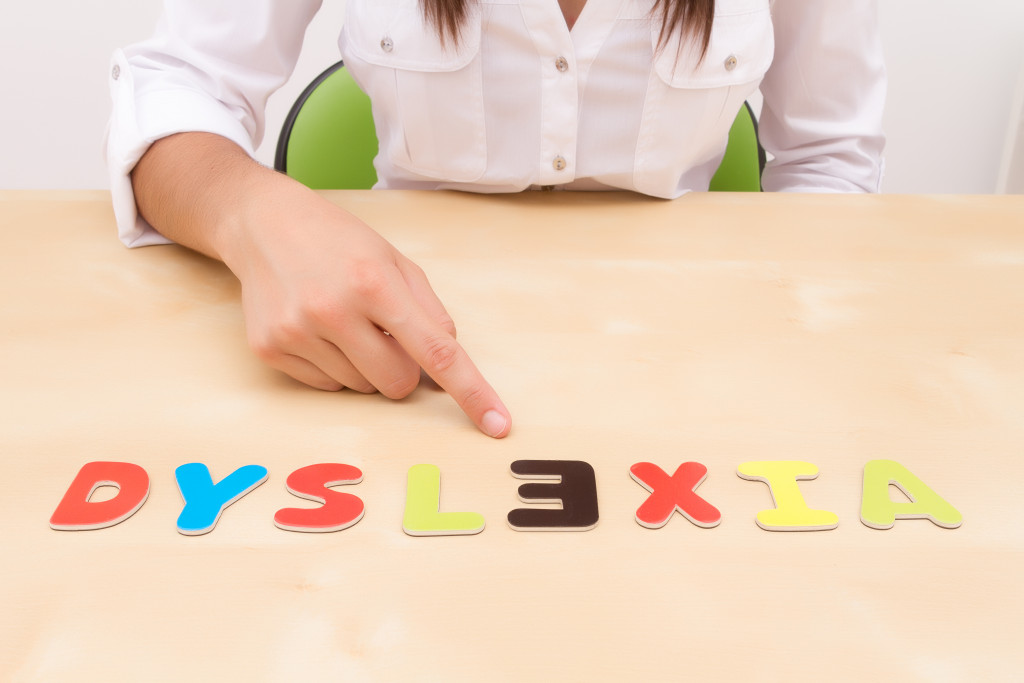is a learning disorder that affects more than 40 million people in the United States, but according to studies, only two million people have been properly diagnosed with this learning disability. It is a learning disorder that is language-based, meaning those with the condition have a hard time with specific language skills like reading and writing, although it comes with a cluster of different symptoms. Some dyslexics only struggle with reading, while others may have a hard time with writing, speaking, and pronouncing certain words.
If your child or someone close to you has been diagnosed with dyslexia, don’t be too quick to despair. There is a wide array of therapies and strategies that can help your child, and you as a parent or guardian will be key to making life easier for your child, especially when it comes to their education.
Here are some tips for helping make school easier for them:
Exhaust every resource available to you
Because dyslexia is also classified as a disability, you might be qualified to make a disability claim for your child. Like many developmental disorders, early intervention can be extremely beneficial for your kid, so you can explore various programs like therapy, tutoring sessions, lessons with a dyslexia specialist, and even specialty camps that your child can attend so that they can be given the lessons and resources they need according to their specific needs and disability. These resources can be quite expensive, so exhausting every available resource will be a good thing for your child, and for you as a parent or guardian.

Never underestimate the power of emotional support
Studies show that children with learning disabilities are prone to developing mental illnesses and mood disorders like depression and anxiety. This is because they feel the weight of their roadblocks and obstacles and that they are not quite like their neurotypical classmates. This pressure can build up especially when they experience being left behind in their lessons on a day-to-day basis.
One of the best things you can do for your dyslexic child is to extend your unconditional love and support towards them no matter what. This may manifest in the following ways:
- Help them understand their learning disorder. Demystifying and breaking some myths surrounding the disorder will help them develop the resilience and tools needed to manage it. Tear down the lies and false narratives surrounding dyslexia so that they have a better chance of contending with their symptoms.
- Communicate openly with them. Ask them questions about their day-to-day challenges with dyslexia. For example, you can use their struggles to help them understand that it’s a symptom of their disorder. You can say something like, “You know when you have a hard time distinguishing between symbols in your math class? That’s dyslexia.”
- Constantly remind them that their dyslexia is not a sign of a lack of intelligence; it simply means their brain works in a different way. Different doesn’t mean wrong or worse—it just means different.
- Don’t forget to acknowledge their effort and hard work, no matter the results. Dyslexic kids already have so much stacked against them; when their parents or people in their household add to the pressure, they lose their one sure footing and foundation in the world.
- Help them see their strengths. Kids with learning disabilities often zero in on the things they can’t do that they lose sight of the things they’re actually good at. You can say something like, “You were incredible at the basketball game yesterday! You showed amazing leadership and sportsmanship, and I’m very proud of you.”
- Be the first to combat negative self-talk. As soon as your kid says something like, “I’m so stupid. Why can’t I get anything right at school?” Listen to them, don’t invalidate their feelings, and don’t offer quick fixes, but be the first to remind them that learning disability does not make them unintelligent. Be gentle as you help them fight negative self-talk.
Encourage them to try non-school activities
Encouraging them to pursue activities, subjects, and hobbies that they enjoy and feel good doing. It could be sports, music, dancing, and other activities that can help boost their confidence and self-esteem. There’s a link between creativity and dyslexia, so helping your kids discover what they’re good at will be advantageous for their self-esteem.
Raising kids with dyslexia is hard, but it’s nothing compared to what our kids are going through. Lead with love, compassion, and belief in them, and navigate this difficult journey together. Your kid will be grateful to know that their parent or guardian always has their back.

